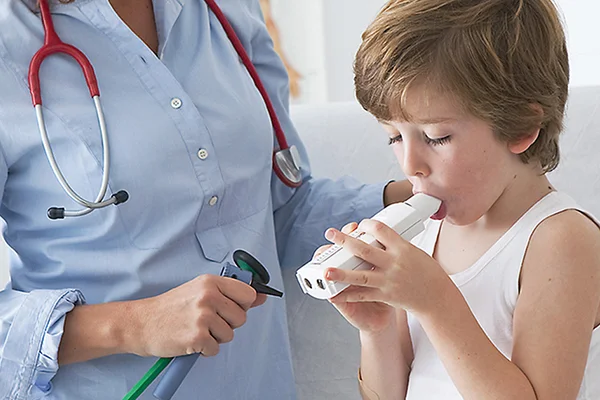As the parent of a child with asthma, it’s important to know the difference between the two types of inhaled asthma medications:
- Quick-relief medication helps your child when he or she is having trouble breathing. These medicines work fast to make breathing easier. This type of medicine is also sometimes used by children before gym class or before doing any type of increased activity, depending on your doctor’s recommendation.
- A second type of medicine is one your child takes every day to control asthma. This is called a long-term controller medication. These medicines decrease the swelling in the lungs. It is important to take these medications daily, even if your child is feeling good.
It is important for your child to have his quick-relief medicine with him at all times. Talk with your child’s teacher or school nurse about him being able to carry the medicine with him and self-administer as instructed.
There are different types of inhalers used for asthma. Some spray a fine mist that your child breathes, slowly and deeply, into the lungs. Others have a dry powder that is breathed in deeply but isn’t felt. Often a spacer is used with an inhaler to help the medicine get into the airways more effectively. The spacer may have a mask (generally used for younger children) or a mouthpiece.
Even with asthma, children can play and take part in many activities, including sports. Often children with asthma cough or wheeze when they exercise, run or play hard. This doesn’t have to happen. Your child’s asthma medicine will help him to be active without coughing or wheezing. Some kids keep asthma symptoms from starting if they take their asthma medicine 20 to 30 minutes before they start their activity. Talk to your doctor about this.
Anyone who has responsibility for your child should know about his asthma, his medications and how to handle asthma episodes. Make sure your child’s school has a copy of his current asthma action plan and contact phone numbers for you as well as your child’s doctor. Talk with the following people:
- Teachers
- School principal
- Coaches
- Daycare providers
- School nurse
- Parents of your child’s friends
- Babysitters
Talk with your child’s doctor about the best ways to use both quick- relief and long-term controller medications and enlist the help of other important adults in your child’s life to help keep your child’s asthma under better control.
Source: Blank Children’s Hospital, Des Moines, IA




